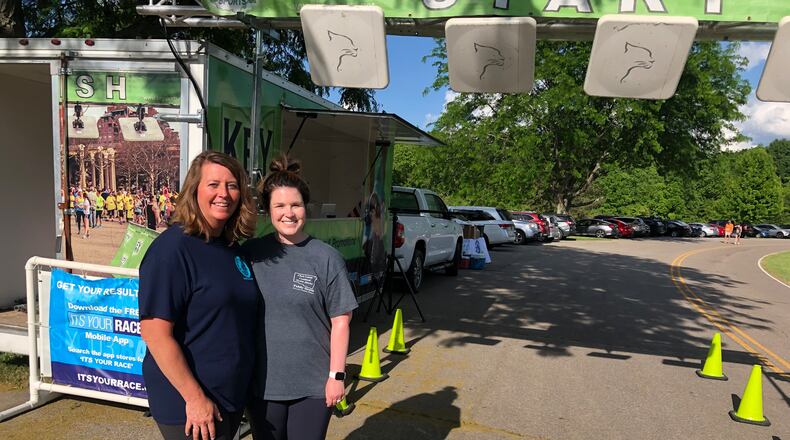“The focus is getting this information out in the community, and we are working to help people on a local level,” said Behler. “Those in cessation respond better in their mental health treatment.”
REACH is designed to help those who use a range of tobacco products including cigarettes, chewing tobacco and cigars. Ivory said the correlation between tobacco use and mental health disorders comes from the products releasing dopamine, which attaches to brain receptors and gives a temporary feeling of relief.
“People who have depression have lower dopamine naturally, but there are other positive ways to release dopamine naturally,” she said. “Cigarettes are a short-term help for those who are anxious and have stress. Nicotine is also easily accessible.”
Behler said stress factors caused by the COVID pandemic and economic issues have contributed to an increase in tobacco use in recent years. And although single packs of cigarettes can cost around $7 a pack for name brands, people are turning to cheaper brands to satisfy cravings.
The REACH program addresses the mental health aspect of quitting tobacco, stressing coping skills in dealing with the irritability and stress. Ivory said one of the biggest struggles is for enrollees to keep the commitment to the program, and the biggest barrier to quitting was stress and turning to smoking to cope.
Vaping has increased in popularity also. While marketed as a safer alternative to traditional tobacco, Ivory has heard from her program attendees they had tried it but felt it was harsher and increased regular cigarette usage after going off vaping.
Behler said vaping THC is a current trend. One of the stressed points is tobacco use makes some mental health mediations less effective.
The six-week REACH classes are done year-round and average about eight people, a number Ivory said is good, with most participants middle-aged and few younger people. The sessions are about making a plan, preparing the participants for scenarios such as what they’ll do at work when coworkers are outside smoking.
She’s seen some people come back multiple times. But the success rate is 75-80 percent at the end of the program. Although they don’t track the participants as they once did, things such as a life-changing event can lead back to smoking.
Health agencies are also adapting to changing populations. Behler said the health department is transitioning the message to reach Springfield’s increasing Haitian Creole population, and said the Quit Line interpreters can accommodate various languages.
Stephen Massey, trauma center director of CitiLookout, a Springfield-based counseling and trauma recovery center, is grateful for the statewide effort and adapted it to his organization. He’s just instituted a 100-percent tobacco-free policy that those who use the organization’s services as well as staff follow the rules of not smoking around the building or before getting into one of the transportation vans.
He consulted with the building’s owner to establish the rules and said it’s worked well so far. The organization’s one employee who smokes is taking steps to respect it.
“We’re looking at what’s best for all,” said Massie. “We hope it can start a movement around the city for creating a healthier environment and transform our community and Clark County into a healthier place.”
The Quit line and REACH programs offer incentives including free nicotine patches, gum and lozenges while supplies last. Those who attend each REACH session can also earn a $10 gas card for each session attended.
“If you know someone who has mental health issues and smokes, these methods can be effective, and we hope people will take advantage of them,” Behler said.
The Quit Line can be called or texted at 1-800-784-8669, or for the REACH program, contact Ivory at 937-390-5333 or 937-390-5338.
About the Author
